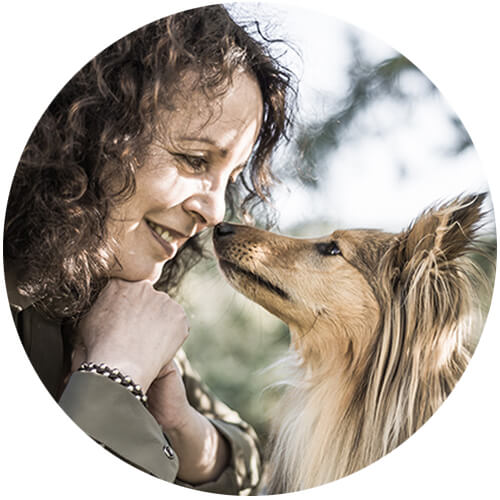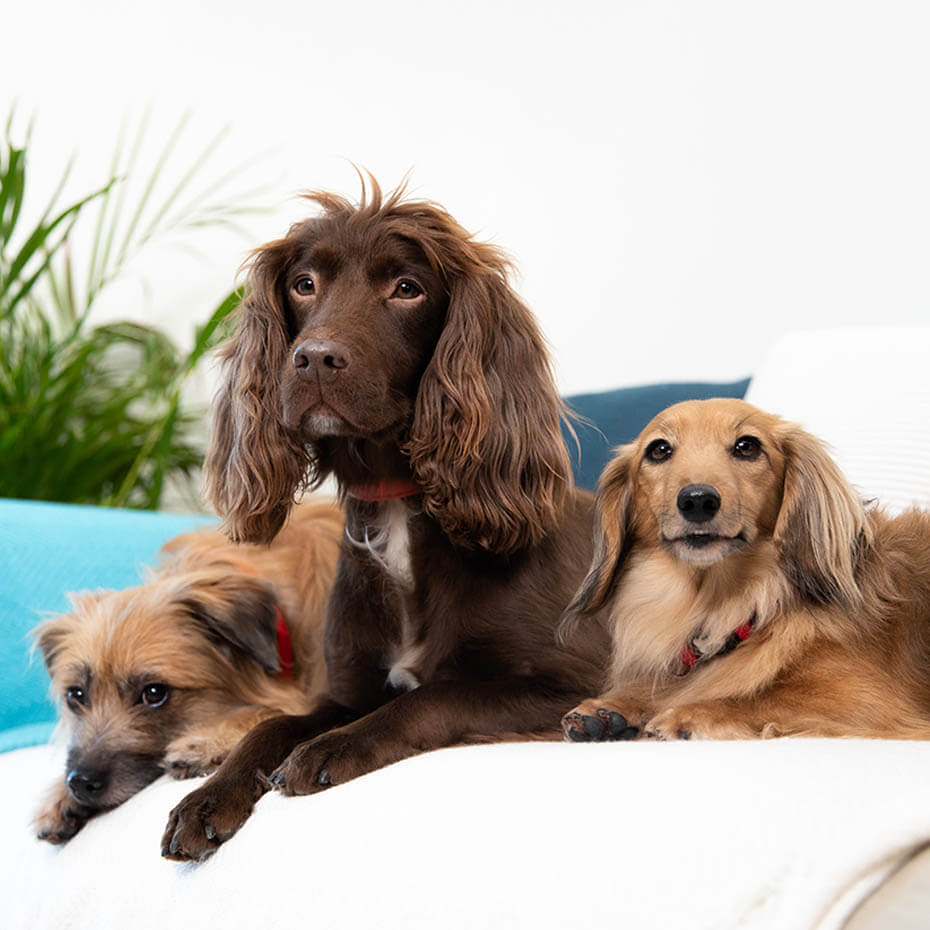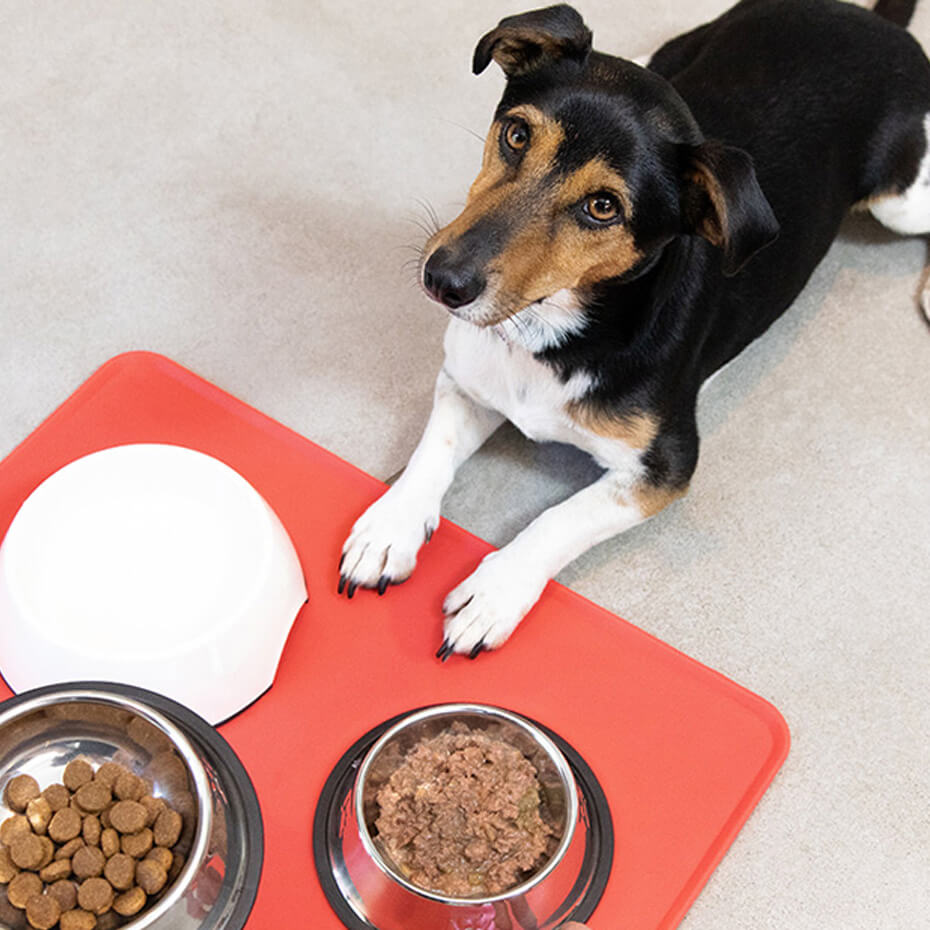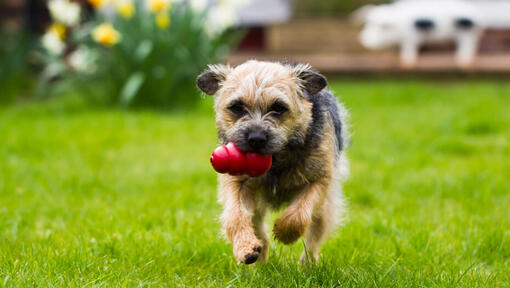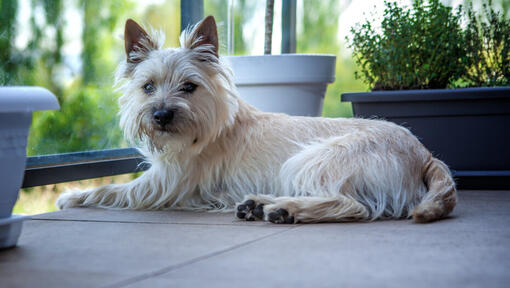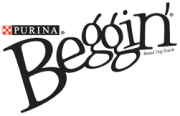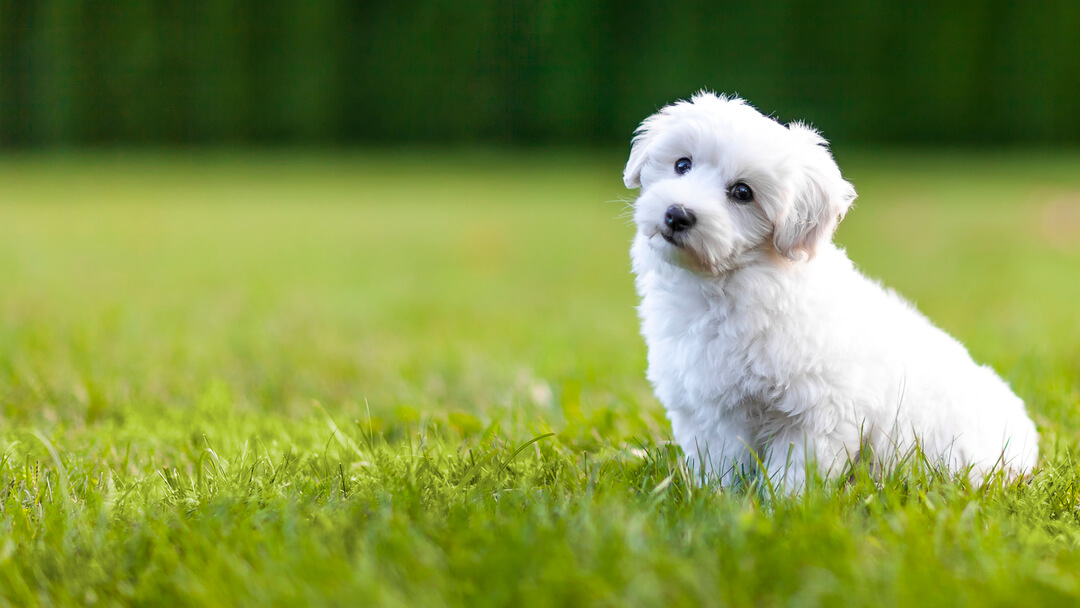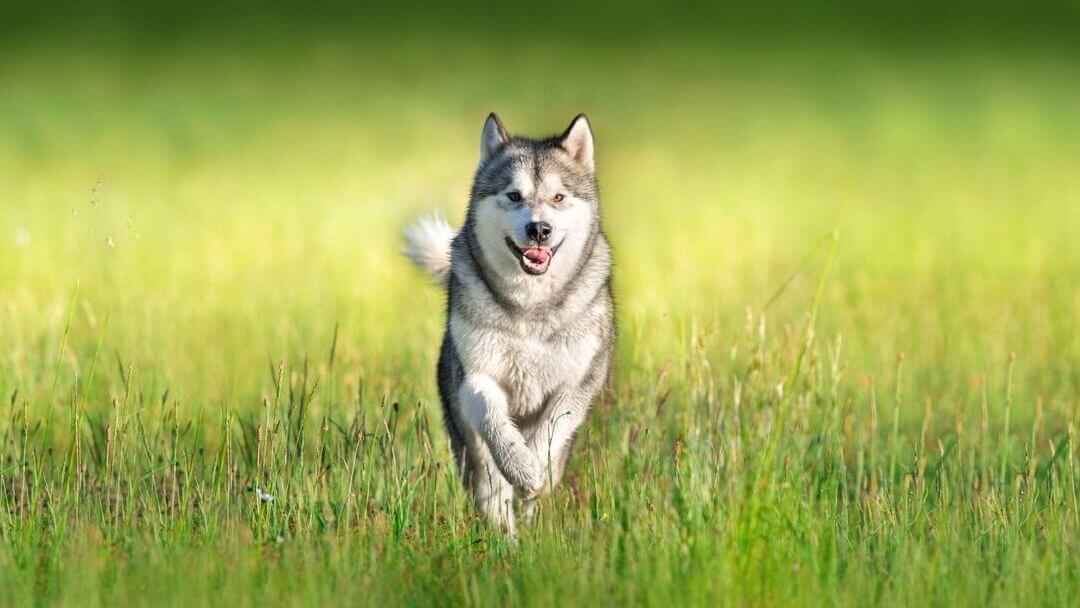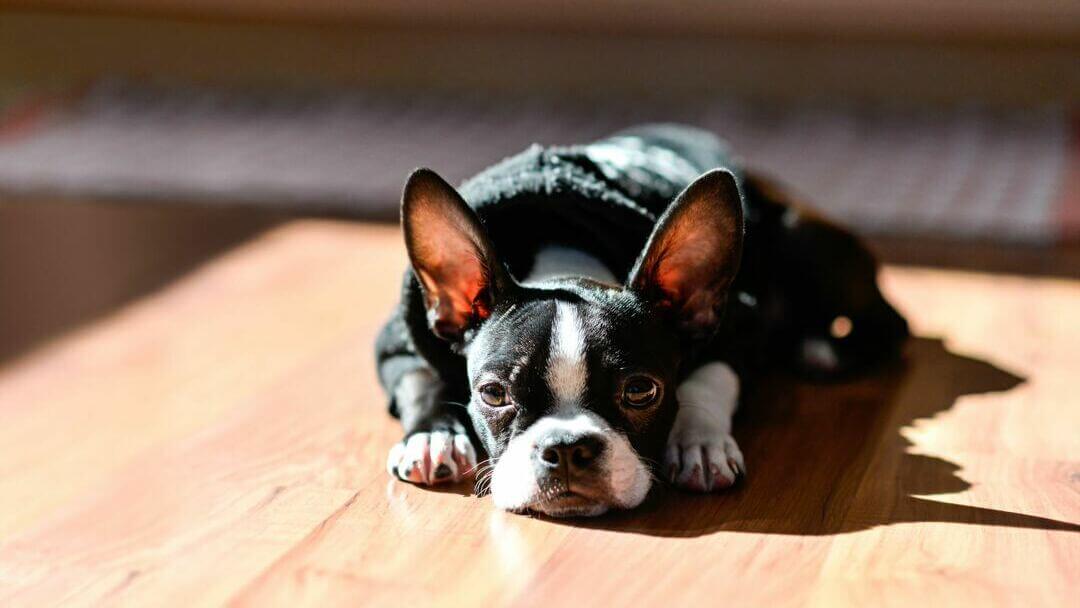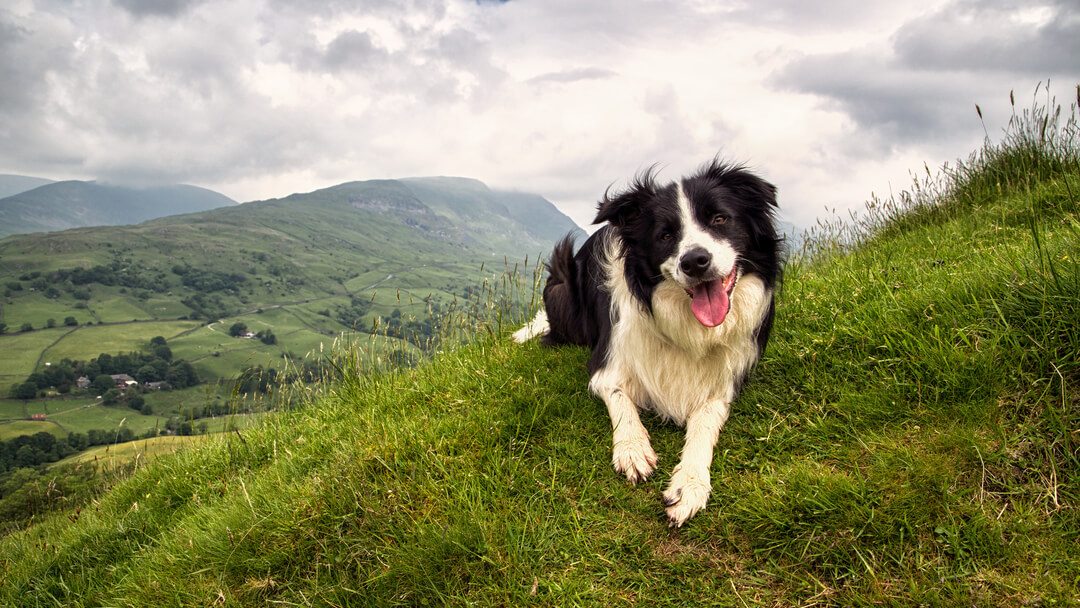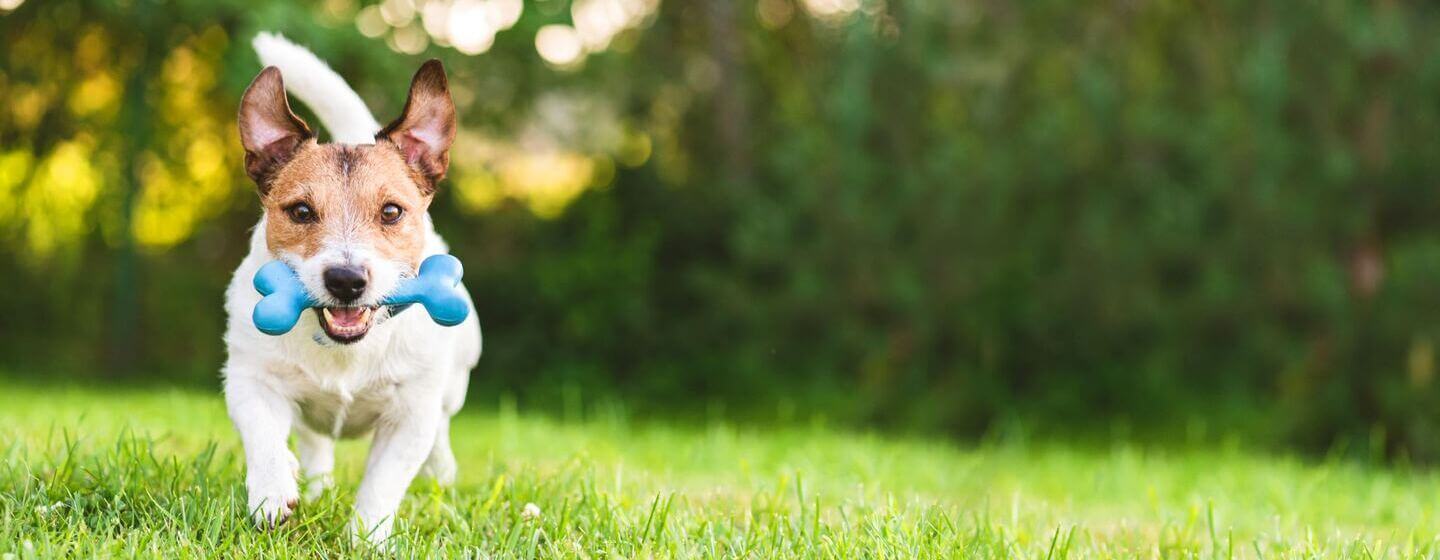
Despite their rather small demeanour, terriers will fill up the house with their energy and love of life. There is plenty of fun to be had with a terrier by your side, but before committing to a life together, here is what you should know about these beloved dog breeds.
Terrier dog breeds are truly enthusiastic about life. They generally have a lot to say and a lot to see, but their diverse backgrounds make room for a lot of variety in their personalities and behaviour. If you think terrier breeds are a match for you, here is what to expect, in a nutshell.
A terrier dog's job description
Most terrier breeds have their origins in the UK and were developed to kill vermin such as rats and mice in a variety of settings from the rural to the industrial, either above or below ground.
Terrier dog breed sizes
With one exception (the larger Airedale), terrier breeds are small dogs with huge - and fairly strong - personalities. With different histories and working styles, some of the terriers are quite feisty and tenacious while others are softer and less challenging, but all can be accurately described as 'large dogs in a small body'!
The natural instincts of terrier dog breeds
Terriers' instincts have been honed to perfection by successive breeding to locate and kill vermin quickly. Terriers who don't have to stalk or chase their prey (as they are in very close proximity) are specialists in watching and killing their prey, often with a single bite.
As this predatory behaviour is self-rewarding for dogs (ie it doesn't need an external reward such as a treat or praise), owners have to be aware that not only do their dogs enjoy carrying out these behaviours, they need to do them to stay healthy and happy. Often, these are also the behaviours they will resort to if they are bored, stressed, under-stimulated, excited - or just for fun.
This certainly doesn't mean you should encourage your terrier be the terror of the local rodent population but it does mean that training and games should be targeted in ways that simulate hunting in order to keep them happy, healthy and fulfilled as well as improve your bond.
Terrier dog breeds behaviour and personality
In order to do their job successfully, a terrier breed needs certain key skills and characteristics.
Fun and active
Terriers love life and are always up for a game or an adventure so they are great for owners who wants a go everywhere dog but in a smaller package! Despite being a small dog, they enjoy lots of walks and exercise.
For fitness enthusiasts or just people who enjoy getting out and about, a terrier will be ideal.
Alert
With a history of looking out for vermin, a terrier will be the first to alert you to just about anything. As well as being constantly alert, terriers are quick to take any action they feel might be necessary. They can be reactive to other dogs - and may hunt small furries including cats.
Determined and courageous
Any dog capable of facing down a rat or larger, needs to be both tenacious and brave and most terrier have these skills in bucketloads.
Independent
If you want a dog who will hang on your every word or excel in obedience or dog sports, a terrier probably isn't a great choice. They can and should be trained to be well-behaved, but they are rarely traditionally obedient! They may also be standoffish with strangers.
Potentially noisy
Some terrier breeds have a lot to say for themselves (especially those who traditionally would work underground as they may need to shout if they get stuck so they can be located and dug out). If your terrier gets bored, stressed or excited (or just because!) they can easily become nuisance barkers. This also can be a problem if they are left home-alone.
Excellent and enthusiastic diggers
Get ready for unwanted digging. Terrier breeds aren't great dogs if you are garden-proud, unless you are prepared to fence off a specific area for them or build a digging pit.
Possibly destructive
If a terrier's ripping and tearing instincts aren't properly channelled, they can be destructive to home and property
Strong bite
If not taught bite inhibition and that human hands are delicate, they can bite hard even if unintentionally.
Is a terrier breed right for you?
There are a few things you need to be aware of before having a terrier join the family.
Despite their size, a terrier will be surprisingly active and enjoy almost as much dog exercise as you want to give them. They do need at least an hour’s exercise a day.
As well as taking your small dog for on-lead pavement walks to explore urban areas, your terrier breed will also enjoy lots of off-lead running in safe areas – be it chasing balls on a beach or scurrying after squirrels and birds in parks and woodlands. Walking Terriers can turn into an unexpected adventure - try and protect them by teaching good recall, but don’t be surprised if your dog doesn’t always listen when mid-chase!
Keep walks varied – these bright dogs enjoy new environments and smells where they can explore the undergrowth, dig and let off steam, so the more they can do it during exercise, the more satisfied they will feel later.
Tug-of-war is usually greatly enjoyed by Terriers; their strong jaws and a determination make them formidable opponents despite their size, but be careful to play gently with dachshund breeds because their long backs can be sensitive. Only adults should play this with these types of dog to avoid potential accidents - even a small, friendly Terrier can pull over a child or accidentally nip a hand when over-excitedly grabbing a fun tug toy.
Many terrier breeds and dachshunds are also very bouncy and love chasing and jumping at moving objects. Try blowing bubbles for them to pop - great fun for everyone, especially for children who get to combine blowing bubbles with playing with their pet. Alternatively, use a bubble machine made especially for dogs to blow meat-flavoured bubbles if you want to amuse them while you get on with other chores. These can be purchased online and from some pet stores.
Many terriers look on dog training with amusement and few are traditionally obedient! Some find training classes too stimulating and find it hard to concentrate around other dogs and people – and so owners need to find a trainer who understands this and can provide them with the right kind of environment while they are learning to focus on their owner. They are however smart and intelligent, and with an owner who understands them – and has both patience and a sense of humour - they can do surprisingly well.
Although your terrier breeds or dachshund can be well socialised and trained to have good manners, they may be unlikely to back down if another dog picks on them, despite the fact they’re physically small! With this in mind, recall training should be practised regularly to ensure you can always get your dog’s attention, and you should remain vigilant on walks for potentially difficult situations with unknown dogs.
It may be a good idea to train terriers to 'shush'. Terriers are quick to react to callers or unusual noises with a warning bark. Some are more reactive and persistent than others, and teaching a good response to the requests ‘Speak’ and ‘Shush’ is very useful for a quiet life! If you teach a Terrier to bark when asked, it will not only mean they can have a good ‘shout’ when it’s convenient for you both, such as outside on a walk, but also that you can quieten your dog more easily when they bark indoors.
Many Terriers and Dachsunds enjoy sitting on a deep windowsill or other piece of furniture and simply watching the world go by. If your dog is quick to bark, however, you might want to restrict their ability to see outside so as not to overstimulate them, and to teach them to be quiet on command – this will make the home environment calmer for both of you.
On occasions when you can’t adequately exercise your Terrier or Dachshund outdoors, training exercises and games such as hiding treats around the house will help to prevent boredom, as well as being a bit of fun too.
Terriers are bred to work alone and so many can become problematic with other dogs if they are not well and positively socialised. To be successful, dog socialisation should be ongoing and carefully managed.
Terrier breeds generally love their own family but can take or leave other people – and some do not have much tolerance for children and the associated noise and running around. The different breeds – and individuals within the breeds - vary widely however and some are far softer and more tolerant.
Most terriers have a rough harsh coat that is weather-proof and fairly easy to keep clean and tidy. Some will have coats that need regular stripping to keep in good condition and coat care should be discussed with the breeder.
Don’t expect your terrier to be quiet – and while some terrier breeds aren’t quite so talkative, others will require you to have very understanding (or distant) neighbours. Training should include teaching your terrier to have an ‘off-switch’ and a terrier-savvy reward-based dog trainer can help you with this.
This varies widely across the terrier breeds – some are very affectionate and are almost lap dogs at home, while others don’t have much patience at all for physical displays of affection but are still just as bonded to their owners. All owners should spend time teaching their terrier puppy to enjoy being handled and groomed to prevent future touch sensitivities.
Terriers love dog games! Especially ones that involve playing with their owner tugging and digging. Interactive toys that allow them to rip and tear (even kibble or treats in an empty cardboard kitchen towel tube will do) will help keep their natural instincts satisfied and help improve the owner/dog bond.
The terrier dog owner checklist
You could be the perfect owner for a terrier if you:
- Have limited space but still want a full-on active dog.
- Enjoy dogs who are independent and may not enjoy physical displays of affection (although remember all dogs are different) but will still follow you everywhere.
- Don't mind noise.
- Enjoy playing games with your dog.
- If you have children, they are either older or else are quiet and 'dog aware'.
- Have a sense of humour!
Feeding your terrier dog
Nutrition is a key part of terrier and dachshund care. Since food is such an important part of what makes a dog like yours happy, there are far more options for feeding that simply giving them a bowl of food twice a day. Instead, make mealtimes longer-lasting and more interesting by devising different ways of providing your Terrier's or Dachshund's daily allowance.
Feeding your Terrier or Dachshund can be fun as well as practical. These breeds' natural desire to hunt and burrow can be stimulated by putting up to 30% of their dry food in a ball pit, or scattering and hiding it around the garden on dry days for them to hunt for. Try placing up to 10% of their dry daily food allowance in a variety of food-dispensing toys for them to play with, and another 5% as rewards for obedience and tricks.
Feed the rest of your dog's food to them in two meals every day (morning and evening) so that your dog will continue to see you as a food provider.
If your dog has wet food, use other more convenient treats as rewards in training, but be careful to include them when calculating their daily requirements. Feed them at least two meals per day: you could split it into one main meal of half their allowance, and put up to 4-5 smaller portions for the other half in varying locations, so your dog has to use their brain power to seek it out.
As long as you are following the daily feeding guidelines on your dog's food packet, monitoring your dog's weight and keeping them in ideal body condition, don't worry if the resulting amount you put in his bowl looks a bit small - if they've had their daily food allocation and you are feeding them a complete diet, they will have all the nutrients and energy they need to be happy and active!
Bonding with your terrier
The best way to bond with your terrier is through games that involve chasing, tugging, and digging. These are great fun for you both!
Dachshund care and Terrier care should include satisfying their innate needs. Dogs in this group are often confident, spirited and extrovert characters. This is because their original work required them to be tough as they went underground hunting rats and badgers - no easy adversaries! Even Terriers who have never seen a rodent can be feisty with other animals, which is why early and thorough socialisation and training Terriers and Dachshunds is especially important for them.
If you are considering getting another dog as a companion, choosing a dog of the opposite sex dramatically improves your chances of them having a happy relationship, as the two sexes usually get on very well and rarely compete over resources. Discuss neutering one or both dogs straight away with your vet. With Terriers, choosing a non-Terrier breed as the second dog can also work well. A Gundog or Scent Hound, for example, will want very different things in life to another Terrier, so they are unlikely to compete. Dachshunds usually get along well with other Dachshunds, so you might enjoy looking after a playful duo!
Whether you have one or more Terrier or Dachshund, you can strengthen the bond between you and each dog through regular play, training and exercise. These are all crucial to your dog's emotional and physical health, but don't forget that just spending time together is also very important, and something they really value. If they've been well exercised mentally and physically, they will enjoy simply snoozing at your feet or on your lap in the evening while you read or watch TV.
Terriers and dachshund breeds generally take well to indoor kennels (sometimes known as crates) and enjoy the peace that comes with being in their own den-like space. Put a blanket over the top and three sides to make it as cosy as possible for a dog that likes to be 'underground', and place some comfortable bedding and a safe tasty chew toy inside to make it perfect.
An indoor kennel is also a great place for your dog to rest unsupervised, keeping them and your household possessions safe. It is important to ensure these small types of dog are accustomed to short periods of solitude from a young age so that they can happily snooze for a couple of hours in a safe, dog-proof room without you when required. Exercise your dog before you leave so they are toileted and ready to relax, and hide a safe treat-filled chew-toy for him to find in your absence. This should prevent your dog barking for company, or becoming destructive in order to entertain themselves.
Explore even more family-friendly dogs with our article exploring the breeds that make friends with kids instantly.
